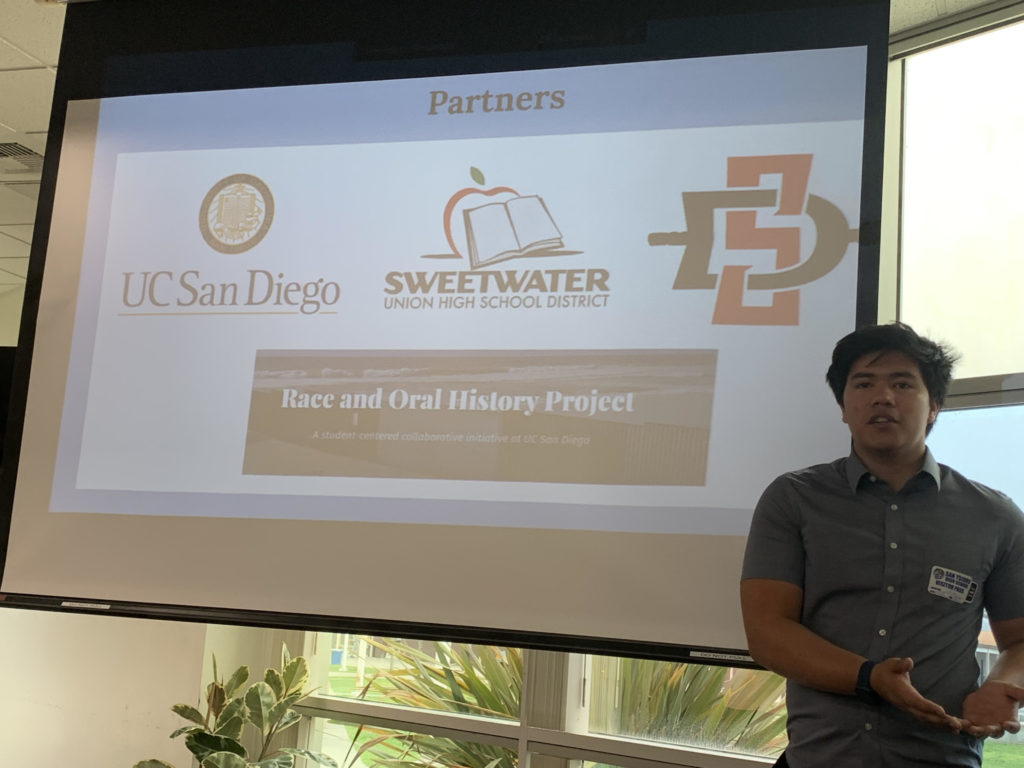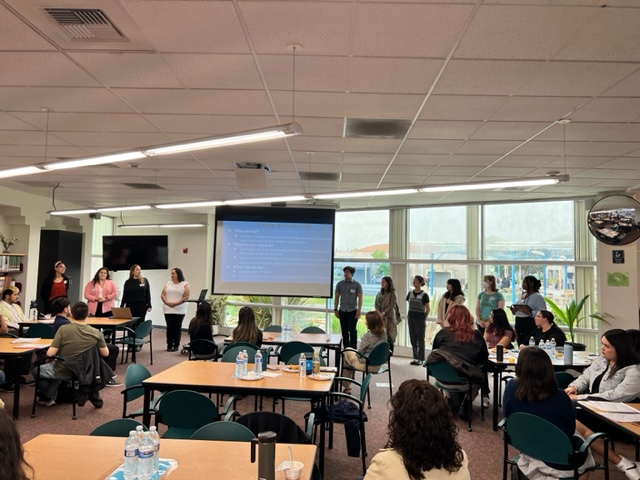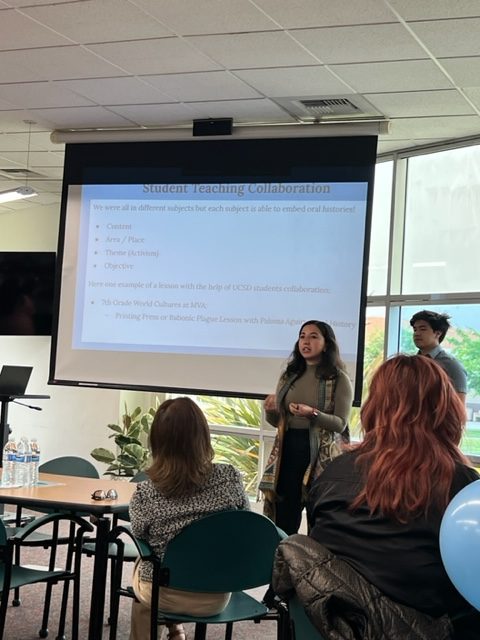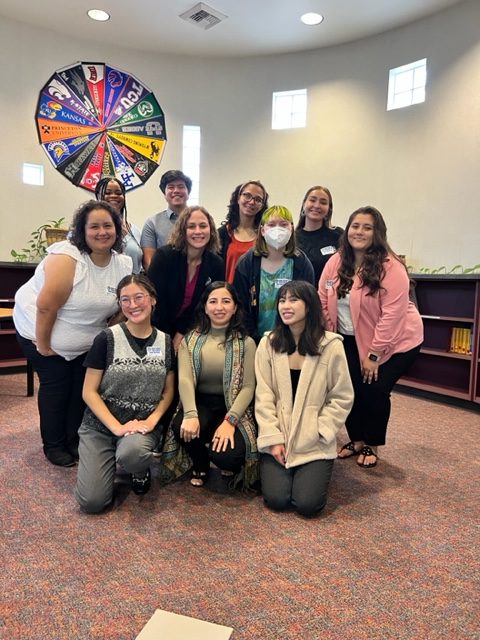Spring 2023: Sarah Delima, Hailey Myers, Hannah Esqueda, Alexander Wicklund
Our group had the privilege of collaborating with the SDSU teaching program to integrate Oral History into their curriculum spanning grades 6th to 12th. This project began in April, as we engaged in weekly meetings with a class of teacher candidates who were seeking to incorporate Oral History into their teaching practices. Throughout the program, we were assigned 3-4 teacher candidates to work closely with. Our collaborative approach was centered around active listening, engaging in conversation, and analyzing oral histories from the perspective of ethnic studies.
To create an inclusive exploration of diverse narratives, we approached our work systematically. We did so by creating an environment that fostered open dialogue, which led to the facilitation of exchange of varied perspectives and insights. This collaborative process included a careful examination of oral histories, allowing us to critically analyze the connections between individual experiences and broader themes within ethnic studies, history, and humanities. It is also essential to acknowledge the interdisciplinary nature of the subject, considering its relationship with related fields such as history and humanities. Our collective efforts were directed at enhancing understanding of the cultural, historical, and sociopolitical implications associated with the subject matter, broadening perspectives and enriching the educational experience for future generations.

Ranging from Early Civilizations to Sociology, the different backgrounds meant each candidate required custom approaches to incorporate oral history effectively. This led to in-depth discussions on integrating oral history into diverse subjects, even challenging topics such as the Renaissance for middle school students. Conversations such as these demanded creativity and collaboration, as we worked closely with the candidates to implement appropriate oral histories that met the specific needs of each class. With hard work, the result was a thoughtful and nuanced integration of oral history, hopefully, enabling students to connect with the subject matter on a deeper level and fostering a more inclusive and engaging learning environment.

Furthermore, our collaboration extended beyond virtual interactions as we had the opportunity to present at San Ysidro High School to an Ethnic Studies class. During this presentation, we shared our experiences and emphasized the importance of oral history in understanding diverse cultures and communities. Through recounting our collaborative journey and showcasing the significance of oral histories, we hoped to inspire both students and educators to recognize the value of personal narratives in shaping historical and social perspectives. The presentation was able to serve as a platform to engage with the students directly, while also encouraging critical thinking, empathy, and an appreciation for the diversity of human experiences.

Oral histories hold a significant connection to the field of ethnic studies, offering invaluable insights into the experiences, traditions, and historical narratives of diverse communities. Through the documentation and analysis of firsthand accounts, researchers can uncover marginalized narratives, challenge dominant historical perspectives, and address historical gaps. By empowering voices that have been historically overlooked, oral histories provide individuals and communities with the opportunity to reclaim their stories, challenge stereotypes, and assert their agency in shaping their own narratives. Additionally, oral histories contribute to a deeper understanding of the complexities of race, ethnicity, and identity, while enabling critical examination of power dynamics, social inequalities, and the intersectionality of different identity markers within the field of ethnic studies.
In conclusion, our collaboration with the SDSU teaching program allowed us to actively engage in the integration of oral history into the curriculum, bringing rich narratives and diverse perspectives into the educational realm. By systematically approaching our work, then fostering open dialogue, and critically analyzing oral histories, we aimed to enhance understanding of the cultural, historical, and sociopolitical implications associated with ethnic studies. Through tailored approaches and creative discussions, we assisted in effectively incorporating oral histories into diverse subjects, making the educational experience more inclusive and impactful. Additionally, our presentation at San Ysidro High School furthered the reach of our collaboration, emphasizing the importance of oral history in understanding and appreciating diverse cultures and communities. The significance of oral histories in ethnic studies lies in their ability to uncover marginalized narratives, challenge dominant perspectives, and contribute to a deeper understanding of race, ethnicity, and identity dynamics.


